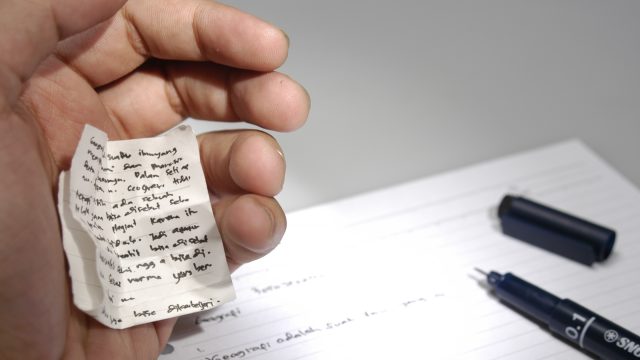John Olsrud: Can We Trust College Administrators To Stop Cheating In Online Courses?

More and more college students are taking online courses for credit. Some college degrees are now awarded for curriculums that are entirely taken online. Offering courses online increases access for people who wish to pursue their educations but cannot afford to attend college in the traditional way, but there is a downside, and that is cheating. Surveys indicate over 70% of students taking online courses admit to cheating.
Other surveys indicate online cheating is no worse than in-classroom cheating, which probably tells us something about the epidemic of cheating in higher education.
What are colleges doing to catch cheaters? How do employers know if their job applicants honestly took the courses and took the exams in those online classes?
We know there is great competition for student numbers on all college campuses. Perhaps that explains why college administrators do not talk about cheating at their institutions. We never hear about college presidents reporting how many students have been expelled or otherwise disciplined for cheating on their campuses. We never hear college presidents telling us how they are going to support their faculties in exposing cheaters. The issue of cheating should be addressed by every institution of higher education offering online courses, whether public or private.
I have a bit of experience in this field. I taught a number of online classes for Bismarck State College. Early in my career as an online instructor, I caught a student cheating on a final exam in an ethics class. I contacted officials at the college with my concern, and I was surprised at the response. When I was in college, students caught cheating were expelled immediately.
I expected full support in resolving the issue I had discovered. What I learned is that the culture on campus now when cheating is discovered is to turn the other way. My faculty mentor told me not to pursue the cheating issue, telling me I could not prove it. Others told me if I tried to discipline the student caught cheating, she could appeal and I would be the loser.
What had happened is that when I was correcting final exams, I had one student who clearly thought outside the box and gave unique answers to short-answer questions. As I proceeded to correct other exams, I came across a second one that had almost word-for-word answers to those short-answer questions as provided by the first student. I then checked the true-false questions, and these two students got the same ones wrong. The first student took over an hour to complete the test, while the second student finished a two-hour exam in eleven minutes.
Against the advice of my superiors, I requested a face-to-face meeting with these students. Turns out these two girls were roommates, which was revealing as online instructors have no information about addresses of students. The first student had taken the exam and then gone out to dinner with her parents to celebrate her completion of final exams, during which time the second student, who had access to the first student’s computer, took the exam.
Even after being confronted with this evidence, the second student would not admit any wrongdoing. It should come as no surprise that students who cheat also lie. Instead of getting expelled or facing other serious consequences, the student was given a minor penalty but was able to pass the course and proceed with her education. If she learned anything from this experience, it is that there are no serious consequences if caught cheating and lying.
I was told it was my job as instructor to prevent cheating. I then used a software program to rotate questions so no two students got the same exam. I then had a husband and wife take my ethics
course. On the final exam, the husband got a B. The wife took the exam later and got an F. Turns out the wife took the exam in just a few minutes and gave the exact same answers as her husband. Problem was, she had different questions than he did.
In order to address the cheating issue, students taking online courses at BSC now have to take a test on the honor code of the college before each course. Given that students who cheat will also lie, I am not sure what is accomplished by this program.
Many years ago, in order to get through college in three years, I took several correspondence courses at the University of North Dakota. Although I did the coursework on my own, the final exams were taken under supervision. Given the geographic diversity of online students, it would be difficult to require the same for those students, but that would probably be a good way to improve the integrity of online courses.
Because so many institutions of higher education are offering online courses, and given the profitability of those courses and the competition for students, can we expect much improvement on the cheating front? I understand some colleges now use webcams so instructors watch their students take exams.
Some colleges require proof of identity at the beginning of a test. There is also plagiarism detection software available. Whatever steps are taken to reduce cheating on online exams, we can be sure students will find ways around them. I
know we cannot trust college administrators to address cheating, whether in the classroom or online, because their careers are judged based on enrollment numbers, and there is no incentive for them to eliminate students who are caught cheating.




